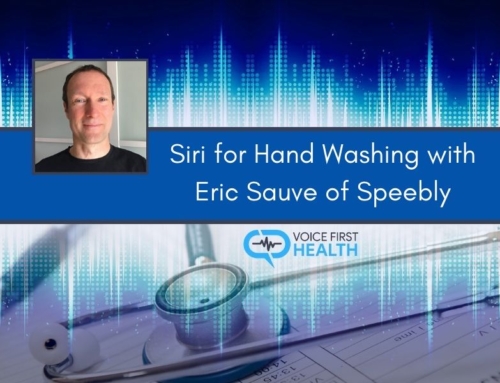VFH Episode 19
In this episode, Teri welcomes “The Oracle of Voice”, Brian Roemmele.
Brian is the consummate Renaissance man. He is a scientist, researcher, analyst, connector, thinker and doer. He is also referred to as the “Oracle of Voice” and is actually credited for having come up with the term “Voice First”. Over the long, winding arc of his career, Brian has built and run payments and tech businesses worked in media, including the promotion of top musicians, and explored a variety of other subjects along the way.
Brian actively shares his findings and observations across fora like Forbes, Huffington Post, Newsweek, Slate, Business Insider, Daily Mail, Inc, Gizmodo, Medium, Quora (An exclusive Quora top writer for: 2017, 2016, 2015, 2014, and 2013), Twitter (quoted and published), Around the Coin (earliest cryptocurrency podcast), Breaking Banks Radio and This Week In Voice on VoiceFirst.fm that surfaces everything from Bitcoin to Voice Commerce.
Key points from Brian!
- The exciting aspects of a true voice first personal assistant.
A Thought Experiment
- Waking up from being born there is a device which your parents and family agree to have on them at all times.
- The device is highly secured and not connected to the internet and it only sends and brings information.
- It records the story of your life in audio and video imagery that you will probably never look at.
- That will be the beginning of your voice first assistant (voice first, not voice only).
- It becomes a memory system for you. Throughout your life you’re going to refer back to it in simple commands like, “Alfred, where was I on March 22, 2037 at 3pm”
- The only way all that works is if there is a form of highly regarded privacy. None of the information in the personal assistant will be on the cloud or on the internet.
- You are a 49-year-old father of three and you are driving along in your self-driving car and unfortunately the car decides to drive off a cliff due a glitch in the program. What’s left is phenomenal; your voice first personal assistant.
- There will have to be rules and laws of how that information will be stored or erased.
- A program might be there to eliminate all those things that you don’t want your children to have raw access to, but you will want them to have access to the sum total of what your knowledge and experience was. That will form the book of your life.
- That book of your life might generate into a hologram or embodied in a robotic system.
- When your son turns 28 years old, he might turn to your essence (your voice first assistant which is still there) and say, “Dad, I’m getting married today and I need some advice. How did you do it?”
- The voice first assistant can respond as a third person or in the first person and advise him based on your experience.
- What we will have is the ability to audit memories that these people have allowed to be audited and be able to have conversations with those memories.
Everything looks like sci-fi until it happens
The Voice First Revolution
- We will be using our computer in a much different way.
- Social media will look a lot of different that it does today.
- We will look things up but we will be asking for the best results.
- Voice commerce (shopping) will be a massive industry just web commerce and mobile commerce really made the internet.
- Advertising will be much more different. We are not going to be interrupted or allow our experiences to be adulterated, but we will seek out experts and influencers that we have concluded through our smart assistants that will have researched on our behalf.
The Meaning of Voice First Health to Brian
- Elderly people are becoming isolated because of the reality of societal existence as we are today. We used to live communally as big families but now we separate ourselves.
- The elderly don’t get to speak very often because nobody wants to talk to them anymore. Voice first technology will enable the elderly to at least create some dialogue and ask questions.
- The technology is extending their usable lives. They are able to inform themselves, reach out into the world, get access to podcasts and get access to information that they would not have had access to because the user interface is not getting in the way.










